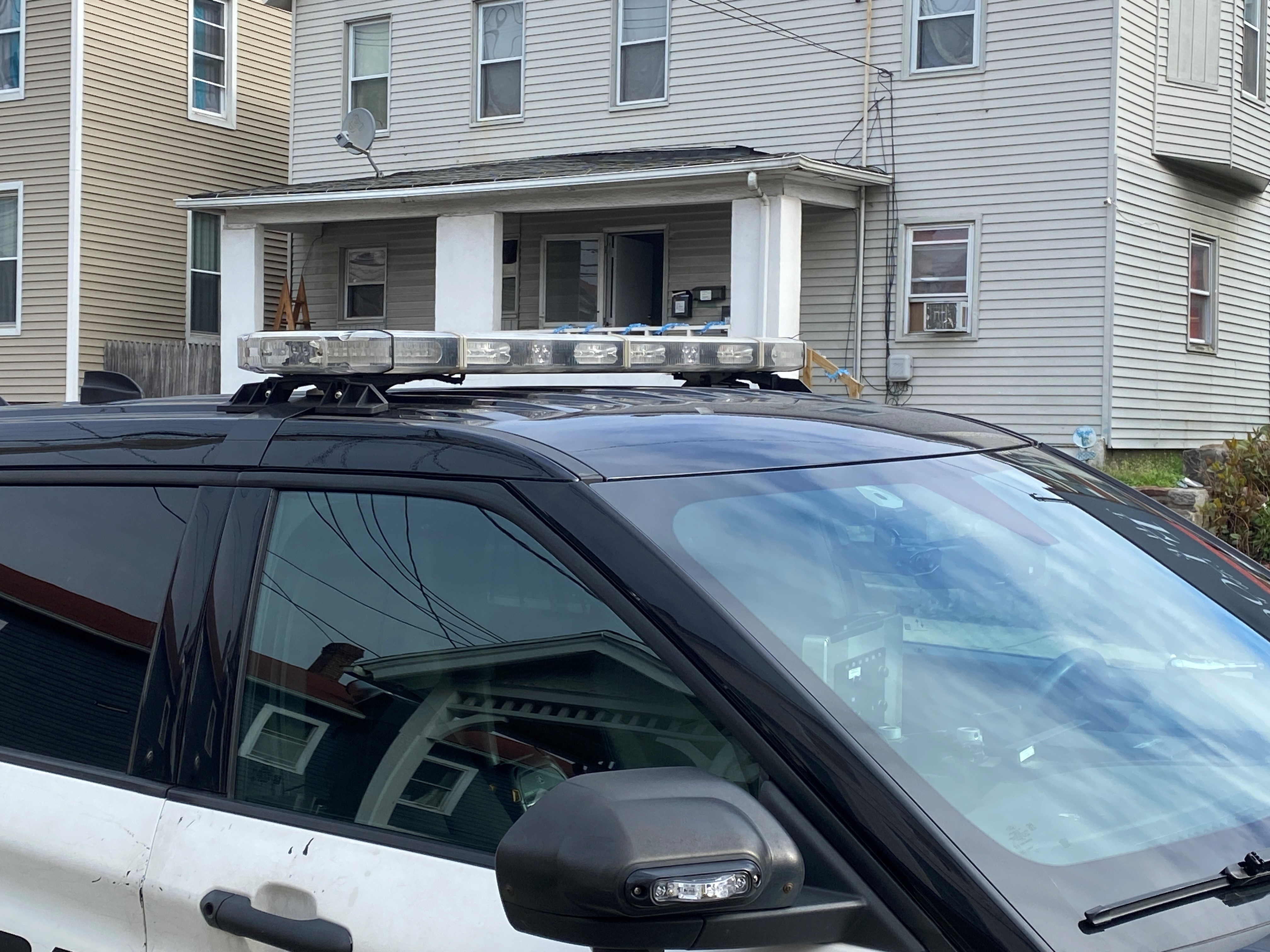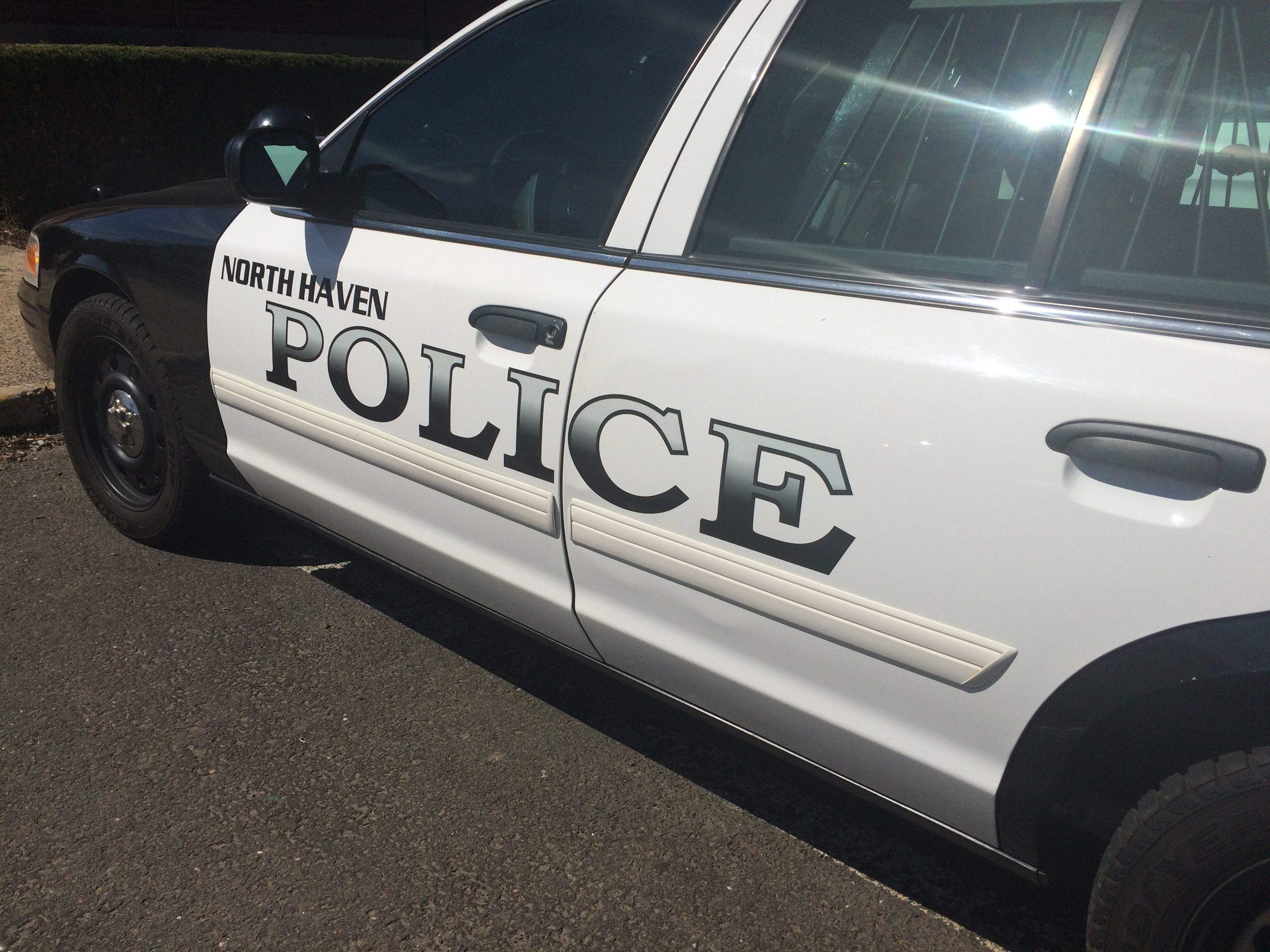A high school football coach who was beaten by Hartford police is joining forces with the officer who wielded a baton at him in an effort to hold the city of Hartford accountable. His case reveals how state law can leave victims of the most severe forms of police brutality empty-handed.
On a December night in 2004, Tylon Outlaw, then 30 years old, was leaving a restaurant at Hartford’s Union Place when he spotted old friends getting in a cab. Crossing the street, he heard a shout, he said, followed by a kick to the chest and blows to his head from behind, coming from men who did not identify themselves as police.
“I could feel the blood trickling down my face and into my eyes, and I’m wondering what’s going on because I’m still getting hit,” Outlaw said.
A baton strike to his knee broke his patella, ending his career as a professional arena football player.
“I felt like shutting down on life. You know, I’ve been an athlete all my life, and they took it away from me,” he said.
Over the years since, Outlaw dedicated his life to coaching. He has taken Bloomfield High School to multiple state championships, all while ignoring the pain he says he feels with every step.
In 2016, a federal jury awarded Outlaw more than $450,000 in compensatory damages after finding Officer Michael Allen, who used the baton, violated his civil rights in the arrest that a judge later described as a “jaywalking incident.”
Local
“Given that same set of circumstances, wouldn’t do anything different,” Allen said in an interview with NBC Connecticut Investigates.
He was just doing his job that night, he said, although he declined to answer any questions about what happened. Yet 14 years later, Allen and Outlaw are joining forces against the city of Hartford.
According to state law, individual police officers are not supposed to be on the hook financially for using excessive force, unless their actions were “willful or wanton.”
The city claims Allen’s behavior meets that standard, leaning on the jury’s verdict that found Allen used excessive force in an “intentional and reckless” manner, and will not pay the judgment.
Attorney Patrick Tomasiewicz, who represents Allen, disagrees. “There was a civil rights violation of use of force, that was unreasonable but not willful or wanton or maliciously intended,” Tomasiewicz said.
The debate over the intention of the law is now playing out in state court, and police outside of Hartford are paying attention.
John Krupinski, president of the Connecticut Fraternal Order of Police, said a court decision in Hartford’s favor could make it easier for other cities to remove the financial safety net for officers facing risky situations.
“It’s going to affect everybody across the state,” Krupinski said.
If that happens, Krupinski said officers could think twice about taking action when it’s needed. “For an officer to go to work, he’s gotta know that the city has his back,” he said.
Without financial backing from the city, Allen is personally liable to pay Outlaw’s judgment. It now amounts to more than $500,000 including legal fees, and it’s more than he can afford, he said.
“It’s un-comprehendible,” Allen said.
As a result, Outlaw has yet to see a penny.
His legal team joined Allen’s lawsuit, hoping to recover the money Outlaw needs to pay a mountain of medical bills that is still growing.
Hartford Mayor Luke Bronin, who is running for reelection, declined repeated requests for an interview and sent NBC Connecticut a long statement in response to questions we asked over email.
We wanted to know if Allen was ever disciplined by the department for using willful and wanton excessive force in the Outlaw incident, and were told, “Under the leadership of Chief Rovella and Chief Rosado, the Hartford Police Department has shown a strong commitment to accountability. I cannot tell you why Officer Allen was not disciplined fifteen years ago under different leadership, but I can tell you that I am certain this case would be handled differently today. Our Department holds itself to high standards, and has responded swiftly and strongly to all cases of conduct unbecoming of an officer, excessive force, and even threats of excessive force…”
We also wanted to know why Allen remained on active duty following the 2016 jury verdict and subsequent appeal, and were told, “Officer Allen retired three days after the final court decision that found him to have acted in a willful and wanton manner, and the City has no options, under either state law or the contract with the Hartford Police Union, to withhold pension benefits…”
The statement continued, “Our officers put themselves at risk every day, and the overwhelming majority of officers hold themselves to the highest standards, put service above self, and treat their oath of office as a sacred commitment. The actions of one officer should never be allowed to taint the selfless service of countless others…”
In a nod to the police body camera program Hartford began rolling out this week, Bronin added, “This case demonstrates why body cameras can be so valuable and important, both for officers’ sake and for the community’s sake, and that’s why we will soon begin outfitting our officers with bodycams…”
Police officers and government employees can be shielded from liability for reasonable mistakes on the job through a legal doctrine called “qualified immunity.” Allen was denied qualified immunity in Outlaw’s case.
Bronin reiterated the claim that Hartford is not required to pay towards Outlaw’s judgment, but indicated they hope to move the case to mediation.
“Despite the fact that the Court has found that the city has no responsibility in this case, we have made several settlement offers and we’re continuing settlement discussions. Our goal is to settle this case so that the victim is fairly compensated, while at the same time preserving the principle that taxpayers should not automatically bear the cost of conduct that is truly egregious, willful and wanton. To be clear, unless misconduct is truly egregious, willful or wanton, we will in all circumstances indemnify our officers fully and without hesitation,” he wrote.
Allen retired in 2018 and receives $88,000 in pension funds per year.



